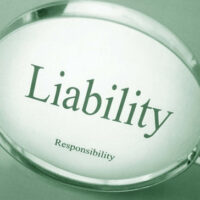Who Is Responsible for a Self-Driving Car Accident?

Car manufacturers are pushing the boundaries of driving and developing vehicles that operate without human intervention. Just recently, we saw Tesla vehicles driving themselves from the factory to loading docks without human intervention. While such advancements aim to reduce accidents caused by human error, many drivers wonder who may be responsible for a self-driving car accident. Read on to learn who can be held accountable in such scenarios.
What Is a Self-Driving Car?
Self-driving cars, also known as autonomous vehicles, can operate without human input. These vehicles can analyze their surroundings and drive to their destination using advanced algorithms, sensors, and artificial intelligence. While developments for fully autonomous cars are still underway, today’s vehicles already feature semi-autonomous capabilities, such as adaptive cruise control, lane-keeping assistance, and even emergency braking systems.
Determining Liability in a Self-Driving Accident
Assigning blame in an autonomous vehicle accident can be challenging but not impossible. In car accidents involving autonomous vehicles, the following parties may be liable:
- The Manufacturer
The manufacturer may be liable when a vehicle’s design or production defect leads to an accident. This may fall under product liability law, which holds automakers responsible for faults in the cars they produce. Since self-driving cars rely heavily on intricate hardware and software, failures in sensors, cameras, or the vehicle’s computer could make the manufacturer responsible. If a defect directly causes an accident, you may have grounds to hold the manufacturer liable.
- The Software Developer
Since autonomous vehicles depend on complex software to interpret road conditions and make split-second decisions, glitches in the system can lead to accidents. If an issue with the self-driving software causes the vehicle to misinterpret traffic signals, fail to stop or react improperly, the software developers could be held liable.
- The Vehicle Owner
While these vehicles are autonomous, drivers are still responsible for their cars. For instance, if an accident occurs due to poor maintenance, such as neglecting a critical software update, ignoring recall notices, or failing to make the necessary repairs, the owner can be held accountable for the accident. Additionally, if a self-driving car requires human intervention at any point and the driver does not respond appropriately, perhaps due to distraction or negligence, they may also share in the liability.
- Multiple Parties
In the same way that multiple parties may be held liable in driver-controlled vehicles, even in self-driving car accident cases, multiple parties may share liability. For example, if a vehicle’s sensor system malfunctions due to a manufacturer’s defect, but the owner also failed to install a critical software update that could have prevented the crash, both parties may be liable.
How Do Insurance Companies Cover Self-Driving Car Accidents?
Car insurance policies are mainly designed around human error. However, with autonomous vehicles now on our roads, insurance companies are adjusting their policies to address these new risks. This means that determining fault in self-driving car accidents can be complicated, and insurance companies may try to shift blame to reduce payouts. This is where a skilled lawyer comes in. An attorney can help you identify liable parties and negotiate with insurance companies to ensure you receive fair compensation.
A Towson Car Accident Lawyer Can Help
If you or a loved one has been injured in a self-driving car accident, our experienced Towson car accident lawyer serving Towson, Baltimore, and throughout Maryland can help you seek the compensation you deserve. Contact Hardball Law at 410-494-7400 today to discuss your case.
